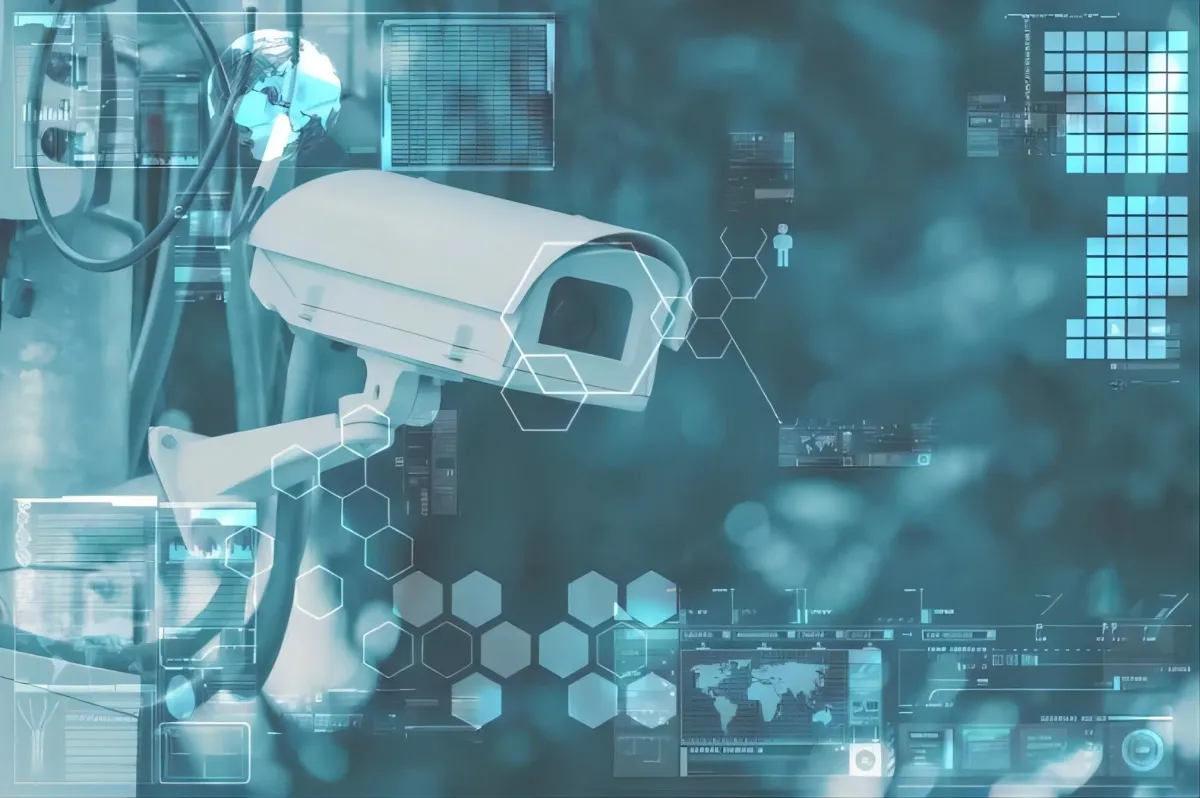Exploring the Top Video Surveillance Companies in the Market

Introduction
In today's world, video surveillance has become a vital part of both residential and commercial security systems. Whether it's protecting homes, monitoring businesses, or securing public spaces, video surveillance technology plays a crucial role in ensuring safety and preventing crime. However, choosing the right video surveillance system can be a daunting task, given the plethora of options available in the market.
In this guide, we’ll explore the top video surveillance companies, their offerings, and what sets them apart. From industry giants to innovative startups, this comprehensive overview will help you make an informed decision when selecting the best video surveillance solution for your needs.

1. Why Video Surveillance is Essential
1.1 Crime Prevention and Detection
One of the primary reasons for installing video surveillance systems is to deter and detect criminal activities. Visible security cameras often act as a deterrent, discouraging potential criminals from engaging in illegal activities. If a crime does occur, recorded footage can be used to identify suspects and provide critical evidence for law enforcement.
1.2 Monitoring and Accountability
Video surveillance systems are widely used in workplaces, schools, and public spaces to monitor activities, ensuring that policies and regulations are followed. These systems help maintain accountability, as employees, students, and visitors know they are being watched. This can lead to improved behavior and compliance with rules.
1.3 Remote Access and Real-Time Monitoring
Modern video surveillance systems come equipped with remote access capabilities, allowing users to monitor their properties in real time from any location. This is especially useful for homeowners who travel frequently or businesses with multiple locations. Real-time monitoring enables swift responses to security breaches, minimizing potential damage.

2. Factors to Consider When Choosing a Video Surveillance Company
Before diving into the list of top companies, it's essential to understand what factors should influence your decision when selecting a video surveillance provider. Here are some key considerations:
2.1 Type of Surveillance System
There are various types of video surveillance systems, each suited to different needs:
- Analog Systems: Traditional and cost-effective, these systems rely on coaxial cables and record footage to a DVR (Digital Video Recorder). While less expensive, they offer lower image quality compared to modern digital systems.
- IP (Internet Protocol) Cameras: These systems use internet networks to transmit data and store footage on an NVR (Network Video Recorder) or cloud storage. They offer high-resolution video, remote access, and advanced features like motion detection.
- Wireless Systems: These systems eliminate the need for extensive wiring, making them easier to install and relocate. They can be connected to Wi-Fi and accessed via mobile devices.
2.2 Camera Features
Different surveillance systems come with varying features. Key camera features to look out for include:
- Resolution: The higher the resolution, the clearer the video quality. Most modern systems offer HD or 4K resolution for crisp, detailed footage.
- Night Vision: Cameras with infrared or thermal imaging technology allow for clear visibility in low-light or complete darkness, essential for 24/7 monitoring.
- Field of View: A wider field of view means fewer cameras are needed to cover large areas. Cameras with pan, tilt, and zoom (PTZ) capabilities offer greater flexibility.
- Motion Detection: This feature alerts you when movement is detected in the camera’s range, minimizing false alarms.
- Two-Way Audio: Some cameras come with built-in speakers and microphones, allowing for communication with people on the premises.
2.3 Scalability
Whether you're installing a surveillance system for a small home or a large enterprise, scalability is crucial. Choose a company that offers systems that can grow with your needs, adding more cameras or features as required.
2.4 Storage Options
Video footage can be stored in different ways, including:
- Local Storage: Footage is stored on physical devices like DVRs, NVRs, or memory cards.
- Cloud Storage: Footage is stored remotely on servers, offering greater security and access but often comes with subscription fees.
- Hybrid Storage: Some companies offer a combination of local and cloud storage for added flexibility and redundancy.
2.5 Customer Support and Warranty
Reliable customer support is critical when dealing with video surveillance systems, as you may need assistance with installation, troubleshooting, or upgrades. Look for companies that offer 24/7 support and comprehensive warranties to ensure you're covered in case of technical issues or equipment failure.

3. Top Video Surveillance Companies in the Market
Now that we’ve covered the essential features and considerations, let’s dive into the top video surveillance companies currently dominating the market. These companies offer a wide range of products and services to cater to different security needs, from residential use to large-scale industrial surveillance.
3.1 ADT Security
Overview
ADT Security is one of the most recognizable names in the security industry, known for its comprehensive home and business security systems. With over 145 years in the business, ADT offers a wide range of products, including video surveillance, alarm systems, and home automation solutions.
Key Features
- 24/7 Monitoring: ADT offers professional monitoring services, ensuring a rapid response to security breaches.
- Customizable Systems: Users can choose from a variety of cameras, including indoor, outdoor, and doorbell cameras, with features like motion detection and HD video.
- Mobile Access: The ADT mobile app allows users to view live video footage, receive alerts, and control their systems remotely.
- Professional Installation: ADT provides professional installation to ensure optimal placement and functionality of the cameras.
Pros
- Long-standing reputation and reliable service.
- Extensive monitoring options with fast response times.
- High-quality cameras with a variety of features.
Cons
- Monthly subscription fees for monitoring services.
- Higher upfront costs for equipment and installation.
3.2 Arlo Technologies
Overview
Arlo is known for its innovative wireless security cameras and user-friendly systems. Their products are designed for both home and business use, offering flexible and scalable solutions with minimal installation requirements.
Key Features
- Wire-Free Design: Arlo cameras are entirely wireless, making them easy to install and relocate.
- 4K HDR Video: Arlo offers some of the highest-resolution cameras on the market, with crisp 4K video quality.
- Smart Home Integration: Arlo systems are compatible with Alexa, Google Assistant, and Apple HomeKit, allowing for seamless integration with other smart home devices.
- Advanced AI Features: Arlo’s AI-powered features include person detection, vehicle detection, and package detection, reducing false alarms.
Pros
- No wiring required, making installation simple.
- High-quality video and advanced AI features.
- Flexible cloud storage options with secure encryption.
Cons
- Cloud storage requires a monthly subscription.
- Battery-powered cameras may require frequent recharging.
3.3 Ring
Overview
Ring, a subsidiary of Amazon, is best known for its video doorbells but also offers a wide range of security cameras for indoor and outdoor use. Ring’s focus is on making home security affordable and accessible with easy-to-use products.
Key Features
- Two-Way Audio: Ring cameras feature built-in microphones and speakers, allowing users to communicate with visitors or potential intruders.
- Motion Detection: Ring cameras are equipped with advanced motion detection, sending instant alerts to your phone when activity is detected.
- Neighborhood Alerts: Ring’s Neighbors app allows users to share footage and alerts with others in their area, fostering a sense of community security.
- Affordable Pricing: Ring offers competitively priced cameras and monitoring services, making it an excellent choice for budget-conscious buyers.
Pros
- Easy DIY installation with minimal setup.
- Affordable equipment and monitoring services.
- Two-way audio and real-time alerts.
Cons
- Cloud storage requires a subscription for full functionality.
- Privacy concerns due to Amazon’s ownership and data handling practices.
3.4 Hikvision
Overview
Hikvision is a global leader in video surveillance technology, offering cutting-edge products for businesses, government institutions, and large-scale projects. Their solutions are known for their innovation, advanced AI features, and comprehensive video management systems.
Key Features
- AI-Driven Analytics: Hikvision’s cameras are equipped with artificial intelligence, enabling features like facial recognition, license plate recognition, and behavior analysis.
- 4K Ultra HD Video: Hikvision cameras provide ultra-high-definition video for superior clarity and detail.
- Scalability: Hikvision systems are designed to scale, making them ideal for large enterprises and institutions.
- Robust Software: Hikvision’s software allows for seamless integration with other security systems and offers advanced video management capabilities.
Pros
- Industry-leading technology with advanced AI features.
- Highly scalable for large projects and enterprises.
- Superior video quality with 4K resolution options.
Cons
- Complex installation and setup, often requiring professional assistance.
- May be overkill for small residential or commercial applications.
3.5 Axis Communications
Overview
Axis Communications specializes in network cameras and video management software, making it a top choice for businesses and institutions that require high-performance surveillance solutions. Axis is known for its innovation in the field of IP video technology.
Key Features
- Network Cameras: Axis offers a wide range of IP cameras, from fixed domes to panoramic and PTZ models, designed for various environments.
- Edge Analytics: Axis cameras feature onboard analytics, enabling real-time data processing for enhanced security and insights.
- Video Management Software: Axis offers powerful video management software (VMS) that integrates with their hardware for a complete surveillance solution.
- Environment-Specific Cameras: Axis provides cameras specifically designed for extreme environments, such as thermal imaging cameras and explosion-protected models.
Pros
- High-quality IP cameras with advanced analytics.
- Flexible and scalable solutions for various industries.
- Reliable and durable products, suitable for challenging environments.





